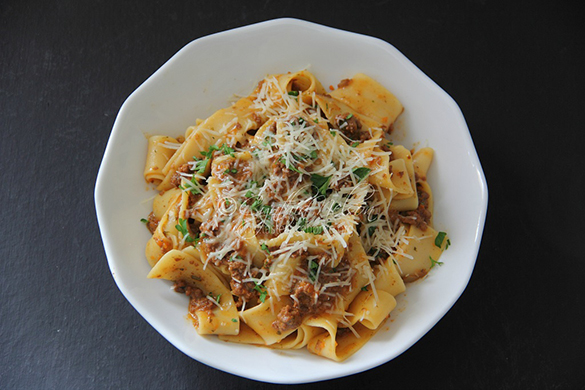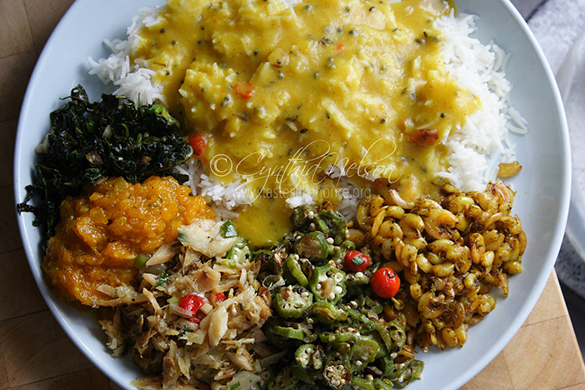What’s Cooking is a series in which I answer questions and share advice about food and cooking that you have but may be too shy to ask.
As friends and I gathered recently for a sumptuous meal of dhal, rice, vegetables, bunjal shrimp and fried salt fish, all to be eaten in the style of 7-curry, someone in the group commented that whenever they cook a meal to be eaten mixed like we were having, they sometimes do not get the salting right. In other words, when everything is mixed together – dhal, rice, veggies etc, the food tastes a little rich of salt. Can you relate? I can.
You can have the same experience of the food tasting salty when mixed and eaten together with dishes like mashed potatoes and gravy; Shepherd’s pie; Macaroni and Cheese or a dish of pasta with any type of sauce. Have you ever made the mistake of adding too much salt to your bread or roti only to find them assertively salty when eaten with accompaniments? See? You’re not alone.
Here’s the thing, whenever dishes are made to be eaten together – in combination with one another, then the salt we add to each component as it is cooked has be less than what would be considered “normal”, as in salt-to-taste. If the salt is not reduced for each component, then when mixed to make a fork, spoon or mouthful, our palettes are hit with an enhanced degree of salinity, dulling the actual flavour of the food. Not too long after a few mouthfuls, our palettes – saturated, heavy, seek respite with water or something plain, bland.
Each component of a composed dish must be able to stand alone, and by that I mean that you should be able to eat each component, taste and enjoy the flavour. The food should be slightly under seasoned (under salted) but not so much that you draw back and exclaim, “This needs salt”. Having each part of the dish not fully seasoned with salt to taste guarantees that when it is mixed, paired, swirled or stacked with other parts of the dish, that each bite will be a perfect union of flavours. So, the next time you are making a combo meal like dhal and rice, with things like salted fish, veggies and curries, cook so that each dish tastes good on its own but that it can also pair and marry well with the other parts of the dish.

There is a famous celebrity chef who says to make the boiling water as salty as the ocean when cooking pasta. Don’t. On its own, the pasta would be way too salty to eat much less when combined with a sauce likely to be well-seasoned as well. The pasta must have taste – season the water and then taste the water before adding the pasta. As I said, remember there will be salt in the sauce too, whether it is marinara, pesto, Bolognese, or alfredo. Don’t forget to factor in that you are likely to add some salty cheese to the dish too.
The same balancing act takes place with the making of Macaroni and Cheese. The pasta must be seasoned, but only so much that when it absorbs and cooks in the savoury cheese sauce, and the two become one, you have a pie that keeps them coming back for more.
I find cooking minced meat to be tricky when it comes to seasoning. Well versed home cooks and chefs recommend cooking a little of the meat in a pan, tasting and then adjusting the seasoning. I don’t always do it. One time I made Shepherd’s pie; on their own the mashed potatoes and cooked mince were fine, but together, salty. I separated the two. To the mashed potatoes I added hot pepper sauce and sour cream and mixed them together – turned out to be really good mashed potatoes. The cooked ground meat I used to make dirty rice and some of it I stir fried with vegetables.
To consider the point further, think of how we use roti (plain/paratha) and boiled rice to accompany our stews, veggie and curry dishes. Actually, add boiled ground provision too. All of these things – paratha, rice and ground provision – function as a plain base for the richly seasoned accompaniments, especially when cooked to have a sauce or gravy.
When cooking, always consider how you plan to serve the meal or rather, how it should, and most likely will be eaten, and adjust your seasoning (salt) to suit.
Cynthia
cynthia@tasteslikehome.org









